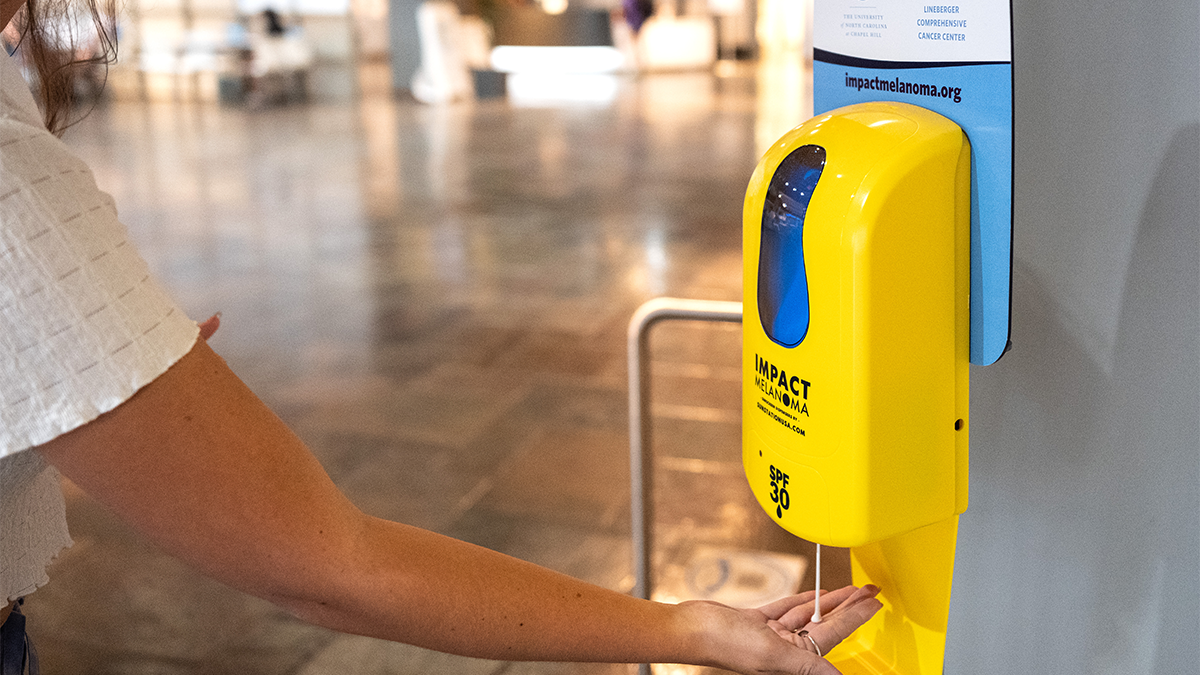Get free sunscreen on campus
An award-winning cancer prevention campaign placed dispensers at 10 venues and created an educational webpage.

A squirt of free SPF 30 sunscreen is nearby wherever you may be on campus.
Carolina’s Indoor Tan-Free Skin Smart initiative to promote skin cancer prevention and UV safety education on campus placed 10 sunscreen dispensers at key locations, including outdoor sports venues and the Frank Porter Graham Student Union.
A Google map shows the locations of individual sunscreen dispenser locations:
- Bryson Field at Boshamer Baseball Stadium
- Chase Dining Hall
- Dorrance Field
- Hanes Art Center
- Health Sciences Library
- Kenan Stadium
- N.C. Basnight Cancer Hospital
- Student Recreation Center
- Frank Porter Graham Student Union
- Wilson Library
Emma Myers, third-year medical student at the School of Medicine, and Dr. Alison Hollis ’18, ’23 coordinated the campaign with Dr. Rachel Blasiak, assistant professor of dermatology at UNC School of Medicine, and Barbara Alvarez Martin, assistant director of community outreach and engagement and population sciences at UNC Lineberger Comprehensive Cancer Center.
Myers and Hollis created a webpage with information about skin cancer prevention. Their goal is to raise awareness of skin cancer prevention and sun safety education. The campaign includes Carolina’s commitment to keep indoor tanning devices off the campus and out of affiliated buildings.
The National Council on Skin Cancer Prevention gave the effort a platinum level Skin Smart Campus Award, which included two of the sunscreen dispensers and a year’s worth of sunscreen.
Skin cancer is the most common type of cancer in the United States, and melanoma — the deadliest form of skin cancer — is one of the leading forms of cancer diagnosed in young adults. According to the International Agency for Research on Cancer Working Group, the use of indoor tanning facilities before age 35 increases the risk for melanoma by 75%.
Myers and Hollis hope that the free sunscreen dispensers will serve as a tangible reminder to members of the campus community to protect their skin while enjoying the outdoors.







